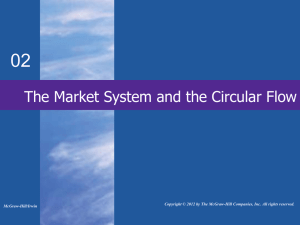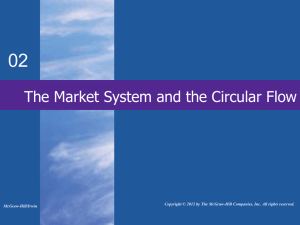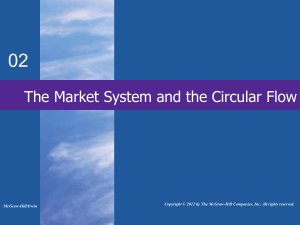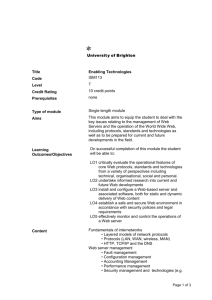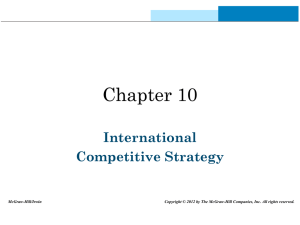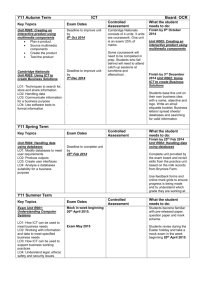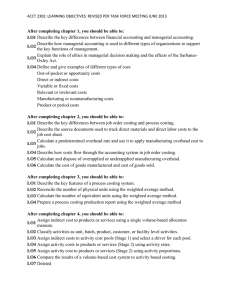Module3:_Worksheet 1
advertisement
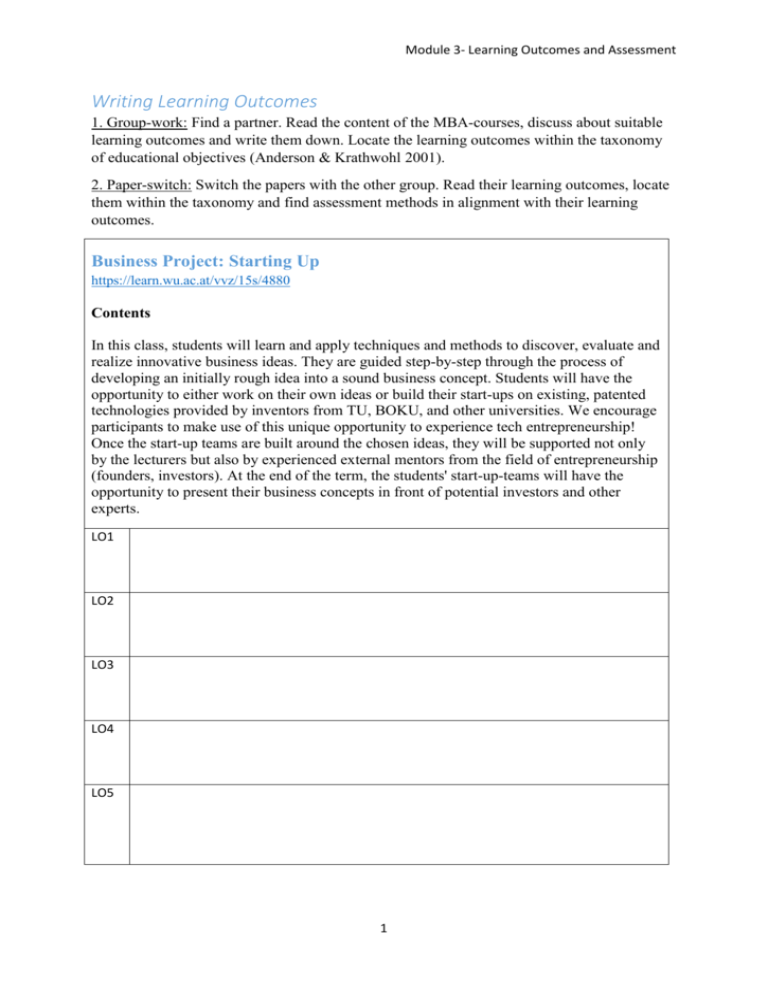
Module 3- Learning Outcomes and Assessment Writing Learning Outcomes 1. Group-work: Find a partner. Read the content of the MBA-courses, discuss about suitable learning outcomes and write them down. Locate the learning outcomes within the taxonomy of educational objectives (Anderson & Krathwohl 2001). 2. Paper-switch: Switch the papers with the other group. Read their learning outcomes, locate them within the taxonomy and find assessment methods in alignment with their learning outcomes. Business Project: Starting Up https://learn.wu.ac.at/vvz/15s/4880 Contents In this class, students will learn and apply techniques and methods to discover, evaluate and realize innovative business ideas. They are guided step-by-step through the process of developing an initially rough idea into a sound business concept. Students will have the opportunity to either work on their own ideas or build their start-ups on existing, patented technologies provided by inventors from TU, BOKU, and other universities. We encourage participants to make use of this unique opportunity to experience tech entrepreneurship! Once the start-up teams are built around the chosen ideas, they will be supported not only by the lecturers but also by experienced external mentors from the field of entrepreneurship (founders, investors). At the end of the term, the students' start-up-teams will have the opportunity to present their business concepts in front of potential investors and other experts. LO1 LO2 LO3 LO4 LO5 1 Module 3- Learning Outcomes and Assessment Corporate Governance in Network Industries https://learn.wu.ac.at/vvz/15s/5268 Contents Network industries including Electricity, Telecoms, Gas, Water and other infrastructure industries such as airports, postal services, etc. generally need to account for both competition and regulation. Adequate performance is only reached by balancing economic efficiency and reasonable profits with public interests and investment needs. Especially the relationship between liberalization and regulation of monopolies dealing with public needs creates multi-disciplinary questions related to corporate governance and strategy that will be addressed in this course. The aim is to address key issues in network industries arising from the intersection of regulation and competition on the one hand and corporate governance and strategy on the other hand. Basics of network industries: Economics of network industries Strategy for network industries Regulation: Positive theories: Why do we regulate? Normative theories: How do we optimally regulate? Applied regulatory practices exemplified for energy markets Corporate Governance: Special rules for utilities Analysis of specific corporate governance mechanisms in network industries LO1 LO2 LO3 LO4 LO5 2 Module 3- Learning Outcomes and Assessment Communication and Personal Skills https://learn.wu.ac.at/vvz/15s/5275 Contents Basics of communication, negotiating skills: active listening, personal messages, questioning techniques. Body language and appearance during presentations and speeches. Giving and taking feedback. Differences between Management and Leadership as input and as tool for practicing team facilitation (brainstorming and solution finding) Intercultural topics in a globalized world: overview of different cultures (the Lewis Model) as helpful tool for a future in an international and multicultural (business) world. LO1 LO2 LO3 LO4 LO5 3 Module 3- Learning Outcomes and Assessment Global Leadership https://learn.wu.ac.at/vvz/15s/5278 Contents At no time in human history has the contact between individuals and organizations from different countries and cultures been greater. Today, employees at all levels work and interact with people from different cultural backgrounds. Companies have followed their customers as they respond to the pressures of obtaining scale in a rapidly consolidating global economy. The increase in global competition and the corresponding erosion of national boundaries has spurred an unprecedented surge in cross-border alliances, mergers, and acquisitions, allowing companies to extend their geographical reach and gain rapid access to global pools of capital, new markets, and specialized resources. Executives travel around broader regions while their jobs remain headquartered in one place. Global virtual teams are created to address important strategic challenges and to become globally competitive. Supplier and customer value chains circle the globe. As a result of these developments, the demands on global executives have increased exponentially. Drawing on insights from diverse fields, including international business, cross-cultural management, international human resource management, organizational behaviour, social psychology, and applied ethics, this course is designed to help participants develop a deeper understanding of the issues that confront global managers today and to prepare them for leadership roles in global organizations. Learning to lead requires self-awareness and self-management skills, so a particular focus will be on personal development and career management. Written and video cases, assessment tools, experiential exercises, and real-life examples from the instructor’s extensive experience as a management educator and consultant will demonstrate that effective global leadership involves a number of critical requirements and skills in three broad areas: Global organizations, diverse people and teams, oneself and developing a global career. LO1 LO2 LO3 LO4 LO5 4
